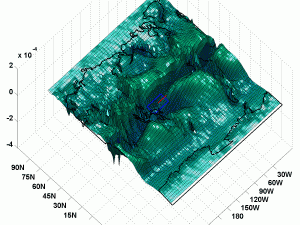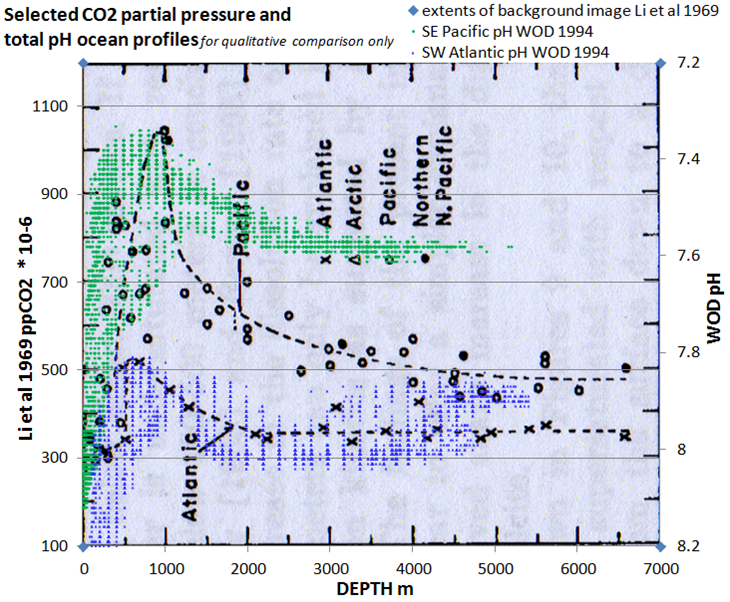
Multipolar Moisture World
My hybridized Ph.D. path of hydrology and nanosciences is useful for explorations of atmospheric circulation from a simplified quantum dot type of approach. By reducing the energy signatures of the planet to only a few degrees of freedom, one can still potentially infer useful information.
I try to emulate approaches found in quantum chemistry texts since they also have an impressive history of extracting important information from only a few degrees of freedom. In working at that I find various similarities between planetary atmospheric circulation mechanics and quantum mechanics. For example I recently attended a lecture at my school exploring eddies in quantum explorations on curved surfaces (other than spherical). It turns out that some type of symmetric two – eddy system will exist at a minimum, if any eddies are to be found at all. As posts here and the subject image demonstrate, stationary eddies also are found on our planet and the principle pairs appear to be symmetric about the equator.
It’s interesting to me that the hydrosphere and the quantum spaces are likely associated with symmetric stationary eddies. For the time being I’m keeping an eye out for other similarities using spectroscopy resources and simplifications of the hydrosphere. Spectroscopy resources deploy information on the nature of molecular orbitals observed upon directed excitation. The orbital geometries are widely known and are typified by combinations of sigma (unipolar “ball”) and pi (bipolar, “bowling pin”) bonds. The planetary hydrospheric circulation may be somewhat analogous.
For example, the North and South Poles are the obvious first order “pi bond” member. And as Summer bounces back and forth between each pole, moisture follows dramatically along for the ride as demonstrated in the animation below. In this two frame animation of a full atmosphere ERAI moisture parameter (EP), the base frame represents summer in the Southern Hemisphere and the alternate frame represents summer in the Northern Hemisphere. The deeper the trough in the EP surface, the greater the proportion of moisture in the integration of the full atmosphere.
After that primary North – South polar impact is filtered out, one can search for other analogous circulation events. Many appear to be evident in the Featured image which leads this post. First I owe the reader an identification that the “bluer” the contour, the greater the proportion of atmospheric moisture through the integrated full atmosphere. The brighter the green, the more dehydrated the full atmosphere becomes. Through a five year trailing average selection of two points in time (a wet and dry period for my region of study within the Southern Rocky Mountains, SRM) two “pi bonds” straddling the equator across the Pacific appear to be evident. This is clearly seen by the gyres that have been somewhat captured by the streamlines. In the wet 5 year period of 1980 through the end of 1984 (identified as 1985 in the featured animation) the western equatorial Pacific Gyres that straddle the equator to its north and south, expand. Concurrently the Western Hemisphere Gyres that straddle the equator to its north and south, contract. And the opposite applies for the dry 5 year period of 1998 through 2003 (identified as 2004 in the featured animation).
This is pure speculation but I also find support from the clear geostationarity of the gyre centers for each given 5 year period. I can also simply review some key statistical hydrology papers to see what many have long known regarding the remarkable and seamless consistency between quantum mechanics and hydrodynamics. It’s amazing to me how much has been learned and how much remains to be learned in these joint fields. In any case exploration of the moisture circulation around the planet over any time scale might be integrally related to these symmetric “pi-like” gyre fluctuations. Or they might not. I’ve only looked at a limited sample to date.
A work in progress subject to possibly frequent mods, corrections, and updates.
 3169total visits,2visits today
3169total visits,2visits today


